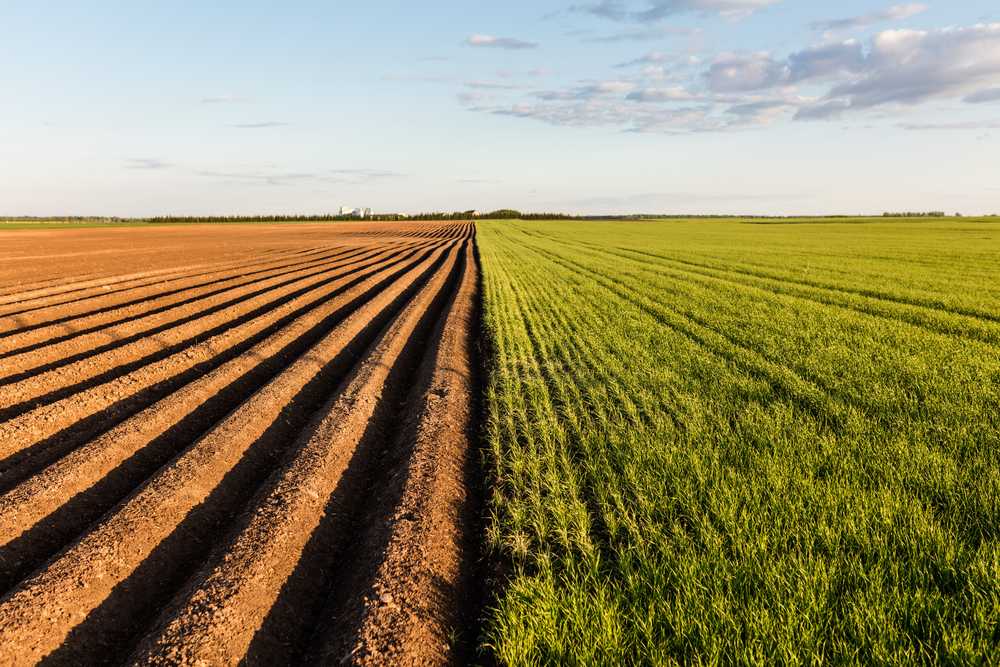123Fab #100
1 topic, 2 key figures, 3 startups to draw inspiration from
In today’s rapidly evolving agricultural landscape, regenerative agriculture has emerged as a transformative approach to address the pressing challenges of climate change, soil degradation, and biodiversity loss. This innovative methodology, first introduced in 1983 by Robert Rodale, offers concrete solutions to restore ecosystems and ensure the long-term viability of farming.

What is Regenerative Agriculture?
Regenerative agriculture is a holistic approach designed to regenerate critical resources such as soil, water, air, and biodiversity while boosting farmers’ incomes. By using regenerative farming methods, farmers can restore the natural balance of their ecosystems, leading to healthier soil, lower CO₂ emissions and increased resilience against extreme weather events like droughts and floods.
Key solutions in Regenerative Agriculture
Soil Regeneration
Soil health is the foundation of regenerative agriculture. While traditional methods like crop rotation, cover cropping, and reduced tillage remain effective, innovative techniques are emerging to further improve soil fertility:
- Precision agriculture: data-driven tools optimize farming practices. For instance, Assolia enables farmers to fine-tune crop rotations and soil management based on real-time insights into soil conditions.
- Biochar application: this form of charcoal produced by heating organic material in a low-oxygen environment, enhances soil quality, improves water retention and contributes to carbon sequestration. Companies such as NetZero and Poas Bioenergy manufacture it.
- Microbial solutions: biostimulants and biofertilizers from companies such as Veragow and Mycophyto offer natural alternatives to synthetic fertilizers, promoting soil fertility and plant health.
Water Regeneration
Water is a precious resource, yet is often taken for granted. Regenerative agriculture emphasizes the importance of efficient water use and regeneration through:
- Optimized irrigation: ensures crops receive the exact amount of water needed, reducing waste. For example, Unilever has implemented this in its Spanish tomato supply chain using soil moisture sensors, weather stations and data analytics software production to provide accurate data on water requirements.
- Water recycling: involves collecting, treating, and reusing water on the farm, through techniques such as simple filtration, artificial wetlands (which naturally filter and treat wastewater), and reverse osmosis, an advanced filtration method that removes contaminants for safe reuse
Air Quality
Regenerative agricultural practices offer a dual benefit: they significantly reduce greenhouse gas emissions—addressing the 20% of global emissions attributed to conventional agriculture (see our blogpost for a detailed breakdown of emissions by sector here)—while simultaneously enhancing the soil’s capacity to sequester carbon.
- Reduced use of chemical inputs: by minimizing reliance on synthetic fertilizers and pesticides, farmers can lower their greenhouse gas emissions.
- Reduced use of heavy machinery: regenerative practices also limit the need for heavy machinery, resulting in lower fuel consumption and reduced emissions. This not only decreases greenhouse gas output but also lowers operational costs and machinery wear.
- Carbon sequestration: techniques like no-till farming and agroforestry—planting trees and shrubs alongside crops—enhance the soil’s capacity to store carbon, effectively removing CO₂ from the atmosphere.
Farmers can also generate additional income by selling carbon credits, for the additional carbon stored in their soil, through platforms like Klim or Soil Capital, which support them in their transition to regenerative practices.
Biodiversity Enhancement
- Biodiversity monitoring: companies such as Nature Metrics utilize eDNA technology to detect individual species from small samples of soil, sediment, water, or air. This approach enables accurate monitoring of changes in both above-ground and below-ground biodiversity, including soil bacteria and fungi.
- Pest management: biological pest control, often referred to as biocontrol, is a method of managing pests using natural predators, parasitoids, or pathogens. French startup Agriodor uses natural scents emitted by plants to repel crop-destroying insects.
How can the transition to regenerative agriculture be accelerated?
The shift to regenerative agriculture can’t be left to farmers alone. Initial costs and associated risks require collaboration between farmers, governments, and the private sector. Policymakers play a crucial role by rethinking existing farming policies, providing financial incentives and offering technical support.
The private sector also has a vested interest in financing the transition to regenerative practices, as it improves their carbon footprint and enhances supply chain resilience. Many companies are already making commitments; for instance, Nestlé, the world’s largest food and beverage company, aims to source 50% of its key ingredients through regenerative agriculture by 2030.
2 Key Figures
40%
of the world’s soils are moderately to highly degraded due to conventional agriculture
$2.2 billion
the amount Danone, Pepsico, Nestlé and Cargill commited to investing in regenerative agriculture at COP28
3 startups to draw inspiration from

Klim
Headquartered in Berlin, Klim enables farmers to transition to regenerative agriculture at scale by providing financial support, knowledge, documentation tools, and a community via their digital companion for farmers. Klim-verified carbon removal credits, generated by Klim farmers, help companies offset their carbon emissions locally with maximum impact and transparency.

Veragrow
A French company that offers organic fertilizers made from vermicompost, i.e. earthworm droppings containing nutrients and micro-organisms beneficial to plants. An ecological alternative to pesticides that also revitalizes the soil.

Agrovar
A Bulgarian company which has developed a software specialized in precision agriculture, offering advanced tools for informed decision-making, as well as real-time crop monitoring and management. Its soil health assessment algorithms analyze essential soil data, contributing to climate resilience by helping farmers adapt to changing weather conditions.
Interested in a startup landscape or in an insights report?
Please fill out our contact form so that we can get back to you very quickly with our product offer.
Want to subscribe to our 123Fab?
Fill out our form to receive the latest insights into your inbox.
